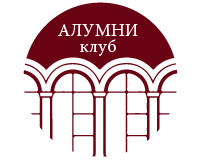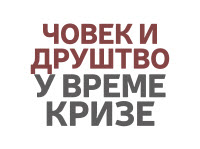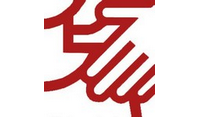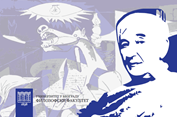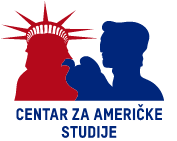РУСКИ ЈЕЗИК - предавања и консултације
Обавештавају се студенти који слушају предмете Руски језик 1 и Руски језик 2 да ће се предавања као и консултације следеће недеље одржати онлајн.
Линк за приступ:https://teams.live.com/meet/9429964985846?p=4hcKiqMmg5757CCS
Психологија
Конкурс за обављање стручне праксе у органима државне управе и локалне самоуправе у школској 2025/26. години
Позивају се студенти Филозофског факултета Универзитета у Београду да се пријаве на Конкурс за обављање стручне праксе у органима државне управе и локалне самоуправе у школској 2025/26. години, које реализују Универзитет у Београду и Министарство државне управе и локалне самоуправе Републике Србије.
Право учешћа на Конкурсу за обављање студентске стручне праксе имају студенти првог и другог степена студија на акредитованим студијским програмима.
Приликом пријаве, студенти су дужни да приложе следећа документа:
1. Попуњену пријаву која мора садржати број индекса, годину (и студијски програм) студија, просечну оцену, али и институцију у којој жели да похађа стручну студентску праксу;
2. Уверење о статусу редовног студента, положеним испитима и укупној просечној оцени које издаје стручна служба факултета;
3. Биографију.
Расположива места, начин извођења и трајања праксе, као и списак доступних институција можете пронаћи у приложеним материјалима.
Студенти достављају попуњену пријаву са горенаведеним неопходним прилозима најкасније до 19. јануара 2026. године на адресу продекана за наставу проф. др Стефана Мићића на nastava@f.bg.ac.rs
Прилози:
Program_saradnje_25_26.zip
Нови број рачуна Филозофског факултета
Обавештавамо студенте да ће од 06.01.2026. године моћи да изврше уплате на рачун Факултета број
840-32794845-74
Позиви на број за уплату школарине, пријаву испита и остале трошкове остају непромењени.
Newsletter 65
Историја
Прилози:
IS-2025-12-31-192253.pdf
Уплате на рачун Факултета
Обавештавамо студенте да због увођења СПИРИ система и гашења актуелног рачуна Филозофског факултета у Београду од 01.01.2026. до објављивања новог упутства и броја рачуна не извршавају уплате на рачун Факултета.
Списак соба за студентски дом за школску 2025/26. годину.
Списак соба за студентски дом за школску 2025/26. годину.
Детаљи у прилогу вести.
Прилози:
Lista_mesta_stud_dom_2025.zip
Трибина Лабораторије за експерименталну психологију „Борбеност је црвена, а афера троугласта: јединственост асоцијација боја и облика речи"
Лабораторија за експерименталну психологију Вас позива на трибину са темом „Борбеност је црвена, а афера троугласта: јединственост асоцијација боја и облика речи", о којој ће говорити Милица Поповић Стијачић (Департман за психологију, Факултет за медије и комуникацију, Универзитет Сингидунум; Лабораторија за психолошка истраживања - ФМК лаб, Факултет за медије и комуникацију, Универзитет Сингидунум; Лабораторија за експерименталну психологију, Филозофски факултет, Универзитет у Београду).
Трибина ће се одржати у четвртак, 25. децембра у 15 часова у Лабораторији за експерименталну психологију (сутерен Филозофског факултета у Београду).
ОТВОРЕНИ ERASMUS+ КОНКУРСИ ЗА ОДЛАЗАК НА СТРУЧНУ ПРАКСУ
Обавештавамо вас да је Универзитет у Београду отворио позив за пријављивање за реализацију индивидуалне мобилности у оквиру Кључне акције 103 Еразмус+ програма мобилности студената за одлазак на стучне праксе – student mobility for traineeships.
Пријаве се као и до сада врше искључиво преко онлајн платформе Универзитета у Београду MobiON (https://mobion.bg.ac.rs/).
У оквиру овог позива мобилност студената се може реализовати закључно са 31. јулом 2026. године.
Рок за подношење пријава истиче 31. јануара 2026. године у 23:59 часова.
Додатне информације о студентским праксама, условима и релевантној конкурсној документацији, као и пријавни формулар, доступни су на следећем линку: https://mobion.bg.ac.rs/erasmus+/how-to-apply/ka103/required-documents-ka103-outgoing-students-for-traineeships
Повраћај 50% школарине - студентска картица
Обавештавамо студенте који су у школској 2024/25. години сами финансирали своје школовање да је неопходно да се до понедељка 22.12.2025. године пријаве за издавање студентске картице путем следећег линка - https://zsk.trezor.gov.rs/ и да до наведеног датума измире евентуална дуговања по основу школарине за наведену школску годину.
Повраћај се односи на део школарине који обухвата први пут пријављене предмете (слушање и полагање). Студенти који се не пријаве за издавање студентске картице неће остварити право на повраћај.
ФЕБРУАРСКИ
испитни рок
- пријава испита: од 12.02.2026. до 17.02.2026.
- уплата најкасније до: 15.02.2026.
- провера услова и приговори: 18.02.2026. године. Студенти се обраћају референту (шалтерска служба) од 11 до 14 часова, уколико испити нису одобрени због школарине (потребно је да се поднесе на увид уплатница о уплаћеној школарини).
- Приговори се подносе 18.02.2026. године. Студенти су у обавези да поштују време предвиђено за приговоре. Накнадни приговори се неће уважавати.
- школарина: 40%.
- испити: од 20.02 до 28.02.2026.
Испити ће се пријављивати искључиво електронским путем. Одлука о испитном року са детаљним информацијама налази се у прилогу.
Прилози:
oprijava-2026-02.doc
Повраћај прве рате школарине за студенте којима је омогућено финансирање из буџета
Обавештавамо студенте којима је на основу Закључка Владе РС омогућено финансирање из буџета у школској 2025/26. годину и студенте који су уплатили вишак школарине за школску 2024/25. годину да молбе за повраћај средстава могу да поднесу најкасније до среде 24.12.2025. године.
У молби је потребно навести број рачуна на који ће се извршити уплата и контакт студента, уз молбу је потребно приложити и доказ о уплати износа за који се захтева повраћај. Молбе се подносе на шалтерима радним данима од 11 до 14 часова.
ЈАНУАРСКИ
испитни рок
- пријава испита: од 19.01.2026. до 29.01.2026.
- уплата најкасније до: 27.01.2026.
- Студенти ће 30.01.2026. године на свом е-индексу видети да ли су им одобрени предмети које су пријавили за јануарски испитни рок.
- Студенти се обраћају референту (шалтерска служба) од 11 до 14 часова, уколико испити нису одобрени због школарине (потребно је да се поднесе на увид уплатница о уплаћеној школарини).
- Приговори се подносе 30.01.2026. и 02.02.2026. године. Студенти су у обавези да поштују време предвиђено за приговоре. Накнадни приговори се неће уважавати.
- испити: од 05.02 до 12.02.2026.
- школарина: 30%.
Одлука о испитном року са детаљним информацијама налази се у прилогу.
Прилози:
oprijava-2026-01.doc
ОБАВЕШТЕЊЕ
У ВЕЗИ РАСПОДЕЛЕ МЕСТА У СТУДЕНТСКИМ ДОМОВИМА
• Коначна ранг листа студената који су конкурисали за смештај у студентски дом за школску 2025/26 годину налази се у прилогу Обавештења, као и на сајту Службе смештаја www.sc.rs. Такође, окачена је и на стаклу канцеларије бр. 1 у приземљу Факултета.
• Расподела за младиће обавиће се у петак 26.12.2025. године у 19:00 часова у сали 103.
• Расподела за девојке обавиће се у петак 26.12.2025. године у 20:00 часова у сали 103.
• Сваки студент је у обавези да понесе индекс и личну карту.
• Уколико нисте у могућности да присуствујете расподели, индекс и писано овлашћење, које није потребно оверавати код нотара, можете дати колегиници/колеги који ће изабрати собу за Вас.
• Уверење о буџетском статусу добићете на расподели.
• Места у студентским домовима која су додељена Факултету биће накнадно достављена од стране Службе смештаја.
Прилози:
Konacna rang lista 25-26.pdf
ПОЗИВ ЗА РАДОВЕ ЗА ТЕМАТ ЧАСОПИСА КРИТИКА
Филозофија
За темат "Аватари, авети, алгоритми: лични идентитет у дигиталном добу" позивамо филозофе, историчаре уметности, антропологе, социологе, психологе, теоретичаре хуманистике, и интердисциплинарне истраживаче да размотре нека од следећих питања:
- Да ли дигитално постојање може бити аутентично?
- Какве етичке дилеме отвара дигитална бесмртност у виду дигиталног близанца (нпр. проблем сагласности, постхумне контроле, приватности података, утицаја по друге који интерагују са дигиталним близанцем)?
- Каква је улога друштвених мрежа у омогућавању дигиталне бесмртности и/или стварања дигиталних близанаца?
- Како се трансформише когнитивни и културни процес сећања кроз могућност дигиталне бесмртности?
- Које су потенцијалне психолошке, социјалне, правне или политичке импликације дигиталне бесмртности и дигиталних близанаца (нпр. последице по концепт афективног везивања, по погребне обичаје и обичаје жаљења за преминулима, потребу за мењањем постојеће регулативе или доношењем нове, по политичко одлучивање и гласање).
Уредница темата: др Вања Суботић, научна сарадница, Универзитет у Београду, Филозофски факултет, Институт за филозофију
Рок за предају радова: 20. април 2026. године Обавезна упутства за ауторе и стил цитирања доступни су на сајту часописа: https://kritika.ifdt.bg.ac.rs/index.php/kc/uautore
Имејл адреса за слање радова: kritika@ifdt.bg.ac.rs
Имејл адреса за слање упита: vanja.subotic@f.bg.ac.rs
Трибина Лабораторије за експерименталну психологију „Да ли модели процесирања синтаксе засновани на вештачким неуронским мрежама ишта објашњавају?"
Лабораторија за експерименталну психологију Вас позива на трибину са темом „Да ли модели процесирања синтаксе засновани на вештачким неуронским мрежама ишта објашњавају?", о којој ће говорити Вања Суботић (Институт за филозофију, Универзитет у Београду).
Трибина ће се одржати у четвртак, 18. децембра у 15 часова у Лабораторији за експерименталну психологију (сутерен Филозофског факултета у Београду).
Прилози:
Vanja Subotic_LEP tribina 25-26.pdf
Повраћај 50% школарине
Министарство просвете, на основу података достављених од високошколских установа, извршило је данас исплату покрића 50% трошкова по основу укупног износа плаћене школарине у школској 2024/2025. години за још 843 студента који имају отворен рачун код Банке Поштанска штедионица уз издату Студентску картицу.
Око 7.500 студената који испуњавају услове прописане Законом за повраћај школарине и за које су високошколске установе доставиле податке, нема отворен рачун на који се средства могу уплатити, јер није ни поднело захтев за Студентску картицу.
Министарство апелује на самофинансирајуће студенте који испуњавају законом прописане услове за повраћај средстава за школарине да је неопходно да најкасније до 18. децембра 2025. године поднесу захтев за Студентску картицу, како би им средства могла бити уплаћена.
У супротном повраћај 50% плаћене школарине за 2024/2025. годину није могуће извршити. Пријаве за Студентску картицу врши се путем портала Управе за трезор, на адреси https://zsk.trezor.gov.rs/.
Министарство просвете подсетило је високошколске установе да податке о самофинансирајућим студентима, које нису још доставили, доставе најкасније до 12. децембра 2025. године путем ЈИСП-а, а све исправке података о плаћеним школаринама најкасније до 18. децембра 2025.
Обавештење за студенте којима је у складу са Закључком Владе Републике Србије број 612-11294/2025 омоућено финансирање из Буџета у школској 2025/26. години
Студенти којима је у складу са Закључком Владе Републике Србије број 612-11294/2025 омоућено финансирање из Буџета у школској 2025/26. години на Одељењима на којима је уписан мањи број студената у односу на претходну годину могу да провере статус путем е-индекса.
Студенти којима је промењен статус са самофинансирајећег на буџетски и који конкуришу за смештај у студентском дому могу да поднесу документацију најкасније до 15.12.2025. године.
ОТКАЗИВАЊЕ КОНСУЛТАЦИЈА КОД З. ЈОЛИЋ МАРЈАНОВИЋ
Консултације које су планиране за 12. 12. од 10 до 11 сати отказују се због болести.
Молим студенте да ми се, уколико имају нека неодложна питања, јаве путем мејла, на zjolic@f.bg.ac.rs
Обавештење за студентске домове
• Корективна бодовна листа студената по школском и материјалном услову који су конкурисали за смештај у установи Студентски центар „Београд“ за школску 2025/26 годину налази се залепљена на стаклу канцеларије бр. 1.
• Потребно је погледати да ли се студент налази на листи и да ли су елементи за бодовање тачно наведени. Уколико постоји неусаглашеност, обратити се стручној сарадници, у канцеларији бр. 1, ради корекције истих, а најкасније до петка 12.12.2025. године.
• Коначна ранг листа ће бити објављена у четвртак 18.12.2025. године, како на Факултету, тако и на сајту Установе Студентски центар „Београд“ www.sc.rs.
• Тачан датум и време расподеле места ће бити благовремено истакнути на сајту Факултета.
Новогодишња акција Института за трансфузију крви Србије
Драги студенти,
време је да урадимо нешто важно – заједно!
Институт за трансфузију крви Србије у сарадњи са Rapsody travel туристичком агенцијом, организује студентску акцију давања крви у сали Института под слоганом СТУДЕНТИ=ХУМАНОСТ.
Сви који дају крв учествују у наградној игри скенирањем QR кода на лицу места!
Три срећна добитника освајају путовање и воде са собом још једну особу!Путовања која можете освојити су дочек Нове године у Букурешту, Охриду или адвент у Бечу.
Услови за наградну игру су:
1. дај крв у Институту за трансфузију крви Србије у периоду од 8. до 13. децембра (радним данима од 7-19ч и суботом од 8-15ч)
2. запрати страницу @itk_ srbije
3. запрати страницу @rapsodytravelИзвлачење добитника биће одржано у понедељак 15. децембра.
Захваљујемо се и нашим партнерима. Coca-Colа и Starbucks су припремили освежење за све вас који одлучите да поклоните некоме живот.
Дођи, дај крв, освоји путовање и учини нешто добро и за себе и за друге./p>Видимо се у Институту!
Прилози:
Institut_transfuzija_akcija_2025.jpg





